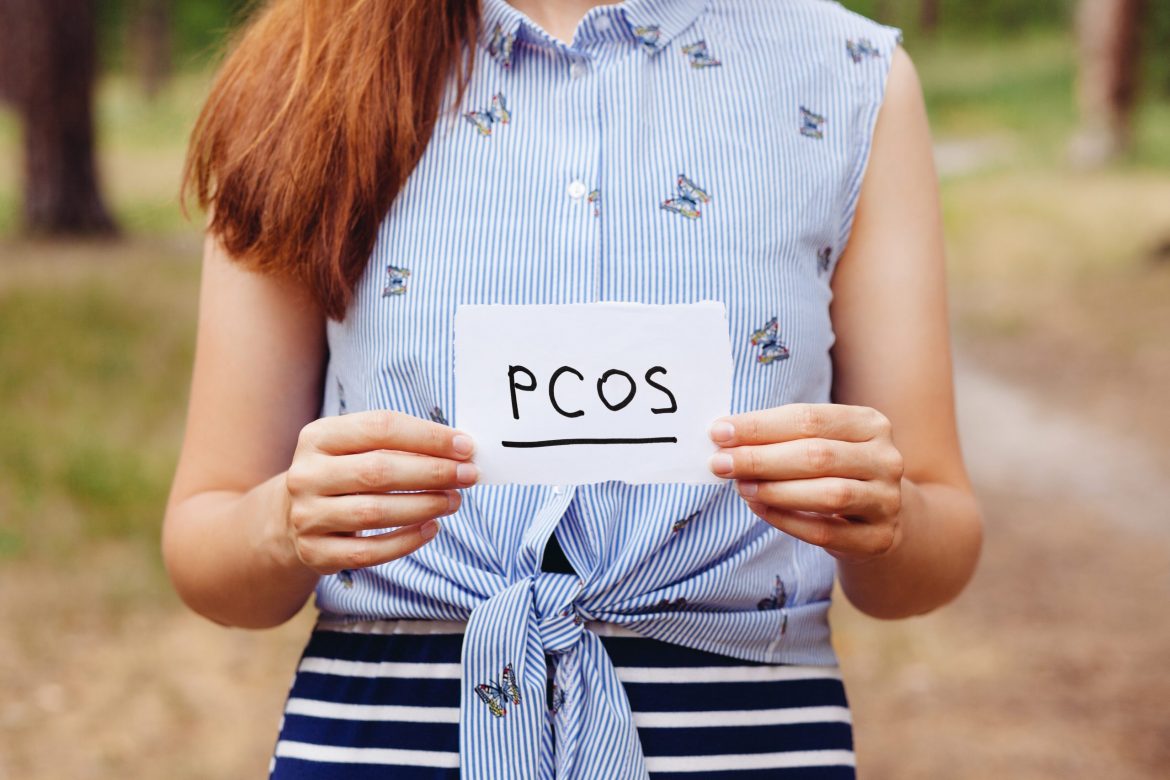Polycystic ovary syndrome is prevailing in our society and is a leading cause of infertility in women. Unfortunately, Pakistani women are rarely educated about why their menstrual cycle has been delayed for months. While female reproductive education remains a silent taboo, on the other side, imagine waking up with extreme uterus pain for days during your monthly cycle without a beat of a pause.
POLYCYSTIC OVARY SYNDROME (PCOS) is the hormonal imbalance of female reproductive hormones which results in enlarged ovaries with fluid-filled sacs. While these sacs may be harmless, in certain cases, ovaries are unable to release the egg leading to an immature menstrual cycle that is the absence of ovulation.
If you are someone new, to the terms mentioned above, relax and sit back, we are going to help you understand what is POLYCYSTIC OVARY SYNDROME (PCOS)all about.
Table of Contents
Symptoms
The first sign to identify PCOS is through symptoms. The most common symptoms are
- Irregular menstrual cycle
- Abnormal hair growth on face and body
- Painful menstruation
- Formation of cystic acne
- Abnormal weight gain
- Shedding of hair
- Very light or no menstruation flows
- Delayed Pregnancy
- Skin tags around different parts of the body (patch-like growth of skin)
- Darkening of certain body areas like armpits, under breasts, and back of the neckline
Apart from the physical symptoms, studies have shown how the majority of women going through PCOS are more likely to suffer from severe mood swings and depression.
What Causes PCOS?
There is a different opinion on PCOS, however, the exact trigger for the condition remains unknown. However, the following are some of the factors which might play a role;
Genetic: certain switching of genes might be responsible for the reflux of female hormones as she reaches puberty. While the probability for it to be carried to the next generation may be more, however, some women do not suffer from POLYCYSTIC OVARY SYNDROME (PCOS) despite their genes.
Low-grade inflammation of Ovaries: research strongly suggests that inflammation around the linings of ovaries may stimulate polycystic ovaries to produce androgen. Androgen is one of the male hormones which is responsible for hirsutism (growth of body and face hair). The release of androgen increases hair growth and also affects the heart and muscle vessels in women.
Insulin: Insulin is a hormone that controls the sugar level in your blood. Sugary foods and excessive junk food can increase insulin levels in your blood. Excessive insulin eventually releases androgen over time which hinders the process of smooth ovulation.
Lack of Physical Exercise: There is little scientific data to back up this claim. Nevertheless, women suffering from PCOS have felt betterment in their condition after they started with physical exercises.
Complications of PCOS
- Infertility
- Delayed pregnancy, miscarriages, or premature birth of the baby
- High blood pressure during pregnancy and diabetes
- Metabolic syndrome- hormonal imbalance with elevated levels of hormone release
- Type 2 diabetes
- Sleep apnea
- Depression
- Abnormal or too little uterine bleeding
When to see a doctor?
Irregular menstruation should be your first cue to see a doctor as soon as possible. Unexplainable weight gain along with painful periods is another important stressor that the condition is prevailing. If you are having problems conceiving or notice an abnormal facial hair growth that you haven’t seen previously. Immediately run to a doctor. The earlier the visit the better your treatment will be.
Please consult with one of our top gynecologists at Healthwire to know if you have noticed any of the symptoms lately.
You can book an appointment for free or opt for online video consultation.
Polycystic Ovarian Disease is Curable
Treatments are based on what are your primary symptoms and conditions. Most treatments are followed by certain lifestyle changes such as physical exercise and dietary plans. Medications are also suggested, again depending on your condition.
Dr. Rabbia Ashraf is one of the most distinguished gynecologists in Lahore, with 10 years of field experience. You can consult her for all your gyne-related problems.
POLYCYSTIC OVARY SYNDROME (PCOS) is a hard battle, but it does not have to be a silent one. There is nothing to be ashamed about your condition and in no way should you stay silent about it, even if it is looked down upon as a taboo. With the right treatment and care your condition can become better. There are many social platforms and groups which you can join to learn better about PCOS.
